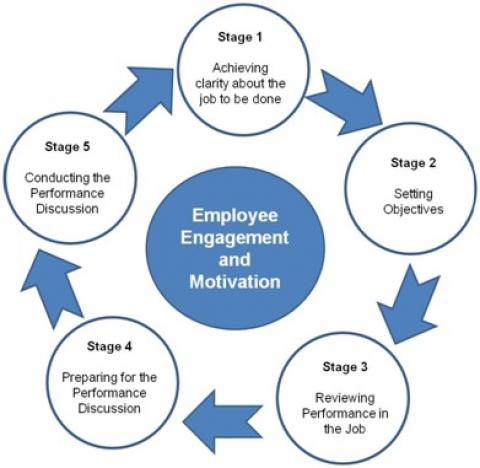HR Insights
HR Insights

19th May 2013
Performance Appraisals ~ When done Right...
Last time we looked at the negative impact of performance appraisals when they are used as a tool to berate; but that’s not the whole story...
Going back to my own story; once I had gone through that first appraisal with my new manager, I began to truly understand the purpose of appraisals and the benefit of taking time at intervals throughout the year to reflect – what had gone well, what went less well, what had been accomplished and what was still to be achieved... As a person who can often be overly-critical of themselves, it was good to hear that things were going better than I may have given myself credit for; it also provided me with a good balance to be able to appraise the performance of my own staff in a constructive manner, to be able to recognise the achievements that had been made – no matter how small they might be.
So; what are the business benefits of conducting performance appraisals...
The Purpose of having a Performance Appraisal Scheme within a business can be summarised as achieving two overall key objectives: -
improving individual performance
personal development of employees
But, alongside these a performance appraisal scheme gives structure to the process of giving feedback to individuals and at times when people are often working at ‘ten to the dozen’, an appraisal scheme provides an opportunity for an employee and manager to take time out of their busy schedules to have a two-way, constructive conversation at least once a year. As a broad outline, the list below can be taken as an agenda for the performance appraisal...
discuss an employee’s key strengths and development areas
discuss any problems which may be impacting on the individual’s performance and considering appropriate solutions to address these problems
review the extent to which the employee has achieved their goals and targets
discussion and agreement of appropriate targets for the next year
identification of training and development needs in relation to the employee’s current role
identification of training and development needs in relation to a role that the employee may do in the future
a discussion about the employee’s future plans and ambitions
a review of the employee’s long-term potential
But what specifically are the benefits of a performance appraisal?
These can be found in the attitude and engagement of the workforce to the business and what it is trying to achieve and can be summed up as:
Employees who...;
know what they are supposed to be doing
have clear and agreed goals
review their performance and receive feedback and;
have an opportunity to discuss their performance regularly with their manager
...will generally be more engaged with the Organisation and motivated to work towards achieving their own and the Organisation’s goals; than employees who are unclear about what they are supposed to be doing, have no clear goals to achieve, never receive feedback (or worse, only ever receive negative feedback) and never have the opportunity to discuss their performance with their manager.

Adapted from 'The Performance Appraisal Model' - Appraisals Pocketbook by Frank Scott-Lennon
Next time, we will look in more detail at each of the five stages of the performance appraisal scheme as illustrated above...
Our Blog archive can be accessed here...
